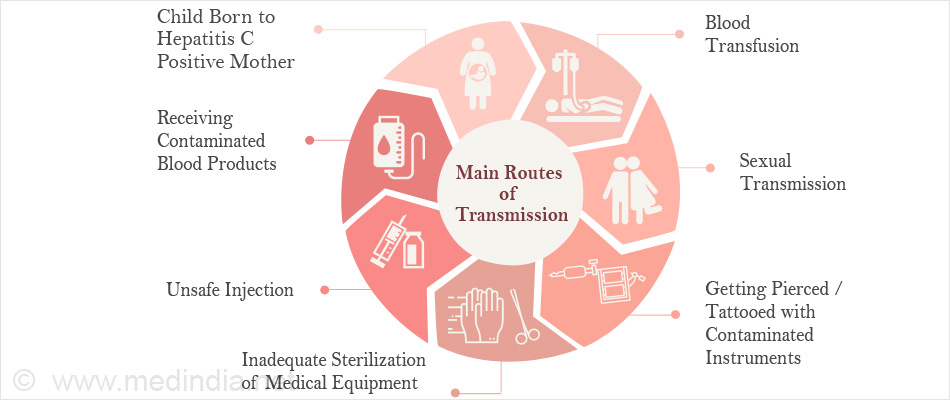
Hepatitis C is a contagious disease caused by hepatitis C virus (HCV). Hepatitis C is the leading cause of liver cancer. It is the most common blood borne disease. HCV is 10 times more infectious than HIV. (To Know More About Hepatitis C Click Here http://www.medindia.net/health-infographics/hepatitis-c.htm).
HCV is most commonly transmitted through unsafe injections, getting pierced / tattooed with contaminated instruments,unprotected sex, transfusion of unscreened blood products, child born to hepatitis C positive mother and direct blood contact with an affected individual.
Hepatitis C do not spread through breast milk, sustenance, water or casual contact with people such as embracing, kissing and offering nourishment or beverages with an affected people.

Treating hepatitis C early can reduce the risk of complications. Based on the genotype testing, the treatment approach can be determined. There are six main hepatitis C genotypes that have different responses to drugs.
Although no active vaccine is available against HCV injection, effective treatment exits. If the infection is left untreated, it tend to develop scarring of the liver.
Hepatitis C can be prevented by avoiding sharing of used needles, razors, toothbrushes, use barrier protection during sexual intercourse, testing donated blood for Hepatitis C & B, HIV and syphilis. The most significant change for anyone diagnosed with hepatitis C is the complete elimination of alcohol from his or her life.

Comments should be on the topic and should not be abusive. The editorial team reserves the right to review and moderate the comments posted on the site.